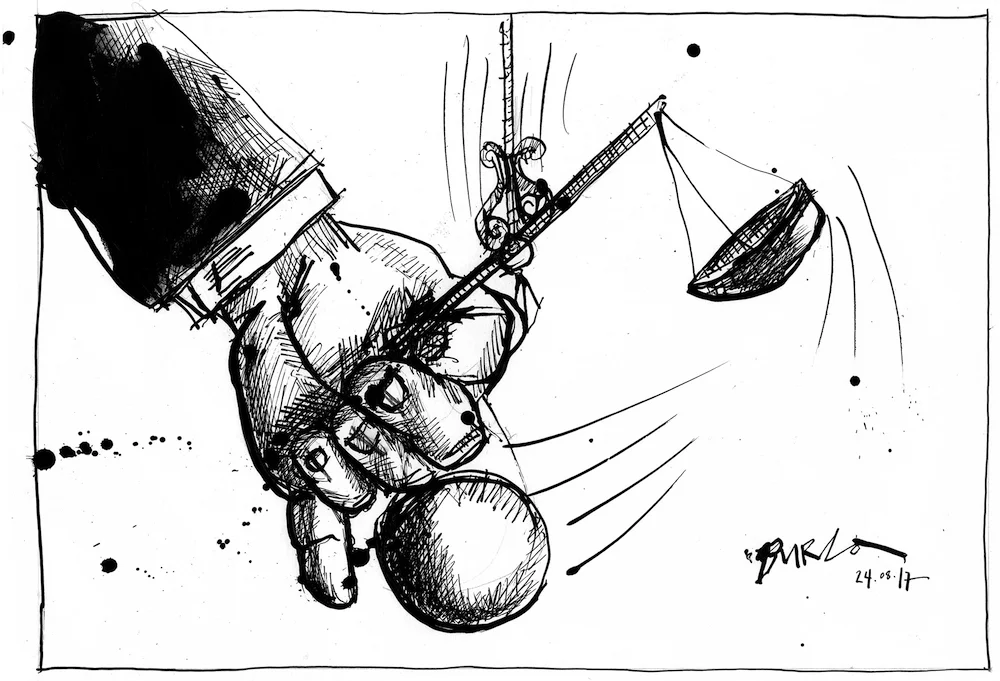Trump Admin Orders DOTs to Re-Certify All DBEs Immediately; Ruling Becomes Final. Big Question Remains: Is It Legal?
Join The Movement to Challenge This Flawed Interim Final Ruling
On September 30, at the directive of President Donald J. Trump, the U.S. Department of Transportation (USDOT) issued an Interim Final Ruling to remove text from the USDOT Disadvantaged Business Enterprise (DBE) Program Regulation that specifies women and specific racial and ethnic groups are “presumed” to be socially and economically disadvantaged and therefor eligible for certification and participation as a DBE. This Interim Final Ruling adds text that requires current DBE participants, and DBE certification applicants, to demonstrate, on a case-by-case basis, that they are socially and economically disadvantaged.
The Ruling became final on October 3, when it was published in the Federal Register.
In accordance with its Interim Final Ruling, the Agency issued formal guidance to state DOTs, such as the Illinois DOT, ordering that they do not use race-based or sex-based “presumptions” in determining DBE eligibility, and that they immediately reevaluate and recertify all existing DBEs, using the new criteria.
Notification of the Interim Final Ruling and the USDOT Directives to state DOTs sent DBE Program staffs by surprise, creating confusion if not chaos, with questions about ongoing construction projects and DBE participation during this recertification phase.
But I say, not so fast, and ask the very appropriate question, considering the propensity of the President and his cabinet heads, “Is the ruling legal?”
According to the Administrative Procedure Act (APA), federal agencies must follow an open public process when they seek to add, revise, remove, or re-designate regulatory text. This includes publishing a statement of rulemaking authority in the Federal Register for all proposed and final rules.
An agency that is in the preliminary stages of rulemaking may publish an “Advance Notice of Proposed Rulemaking” in the Federal Register to get more information. The Advance Notice is a formal invitation for the public to participate in shaping the proposed rule and starts the notice-and comment process in motion.
In general, agencies will specify a comment period ranging from 30 to 60 days in the “Dates” section of the Federal Register document, but the time period can vary. For complex rulemakings, agencies may provide for longer time periods, such as 180 days or more. Agencies may also use shorter comment periods when that can be justified. Members of the public may request that the agency allow more time to submit comments, and agencies may consider late-filed comments, if their decision-making schedule permits it, but generally are not legally required to consider late filed comments.
The USDOT, under Trump, appears to have bypassed this required notice-and-comment process; probably by using the “Good Cause” exception provided by the APA.
The USDOT’s DBE Program is authorized by Congress and mandates that recipients of USDOT funding, that is the state DOTs, set goals to ensure that small businesses owned and controlled by “socially and economically disadvantaged” individuals participate on the contracts that they award.
While the USDOT’s Interim Final Ruling does not attempt to repeal the DBE law, it is advocating that Congress’s “presumption” that women and specified racial and ethnic groups are socially and economically disadvantaged is unconstitutional, that it violates the Fifth Amendment’s Due Process Clause, which provides guaranteed equal rights for all individuals.
The USDOT’s arguments are consistent with, and makes reference to, those of a pending lawsuit, Mid-America Milling Company v. United States Department of Transportation, being litigated in the U.S. District Court for the Eastern District of Kentucky. A final ruling has not been made in this case. However, last year, around this time, the Judge in the case issued a preliminary injunction halting the use of race-based and gender-based contract participation goals for USDOT contracts that the plaintiffs choose to bid on. The court order affects only those contracts that the plaintiffs choose to bid on, only about half of the nation’s state DOTs, including the Illinois DOT (IDOT). The USDOT Interim Final Ruling affects all of the state DOTs and all of the DOT contracts that use USDOT funds.
The USDOT Interim Final Ruling also pertains to the Airport Concession Disadvantaged Business Enterprises (ACDBEs).
It appears to me that USDOT did not follow legal procedures set forth by the Administrative Procedures Act (APA) to make these changes.
Specifically, I am concerned that USDOT has failed to:
Follow an Open Public Process
Publish a Statement of Rulemaking Authority in the Federal Register (FR)
Publish a Regulatory Plan to announce the Rulemaking Activity
Publish, in the FR, the "Proposed Rule" once it was developed
Specify, in the FR, a Comment Period for the Public to Submit Comments
Show Good Cause to bypass Publishing the "Proposed" Ruling and the Notice-and-Comment Process
Submit the Interim Final Rule to the U.S. Senate and the U.S. House of Representatives for Review
Minority Entrepreneur News is preparing to submit our concerns to the Illinois Attorney General's Office, and other legal advocates for Minority Business Development, for support in challenging the USDOT Interim Final Ruling to Amend the USDOT DBE and ACDBE Program Regulations. We trust you will join us.
For additional reading, reprinted on this website, with front page access, are:
"Understanding the APA: How Federal Laws Are Changed,” prepared by the Office of the Federal Register.
“The Regulatory Loophole that Can Shut the Public Out,” an article by Janice Luong, published by the Project on Government Oversight (POGO). POGO is a nonpartisan independent watchdog that investigates and exposes waste, corruption, abuse of power, and when the government fails to serve the public or silences those who report wrongdoing. The organization started in 1981 as a small Pentagon watchdog, and has expanded its mission over the years to focus on the entire federal government.



